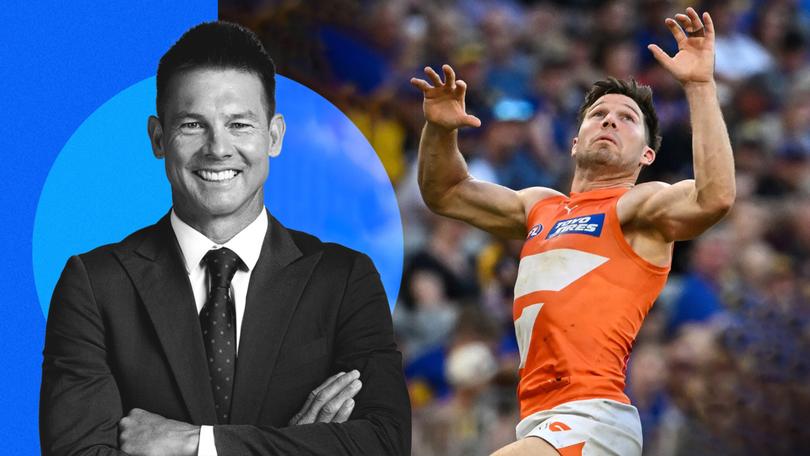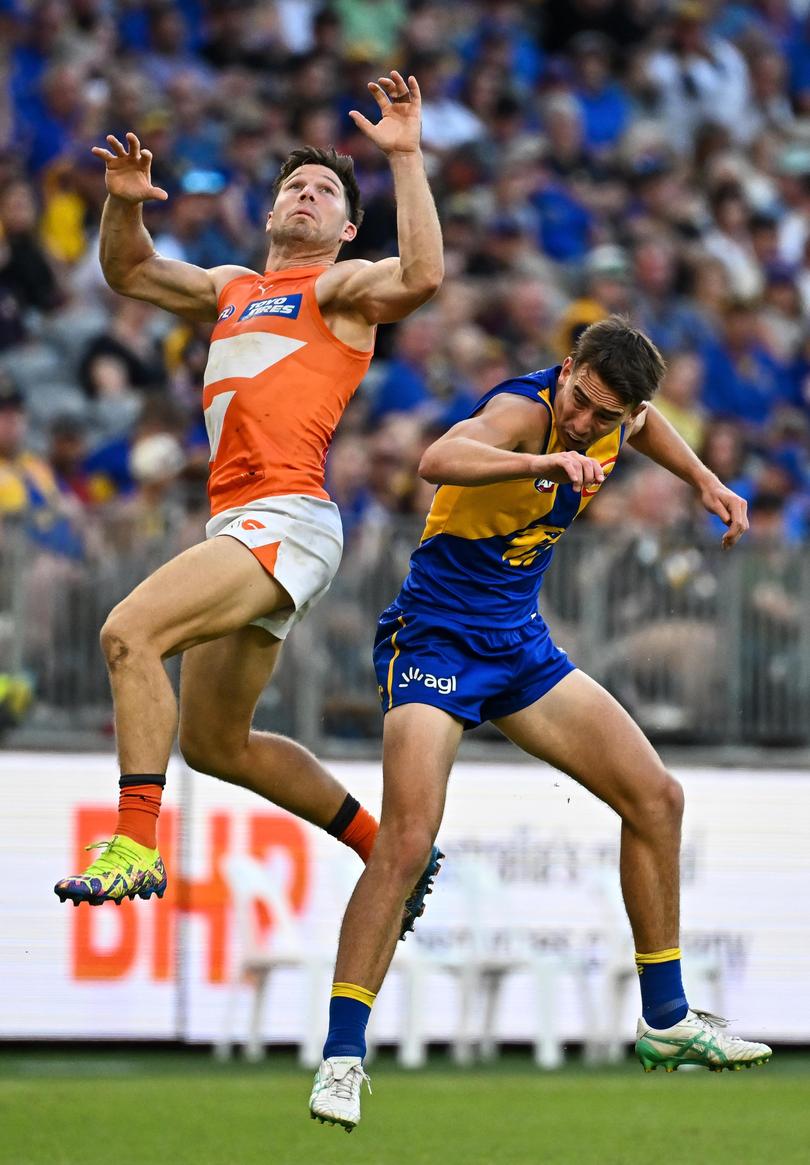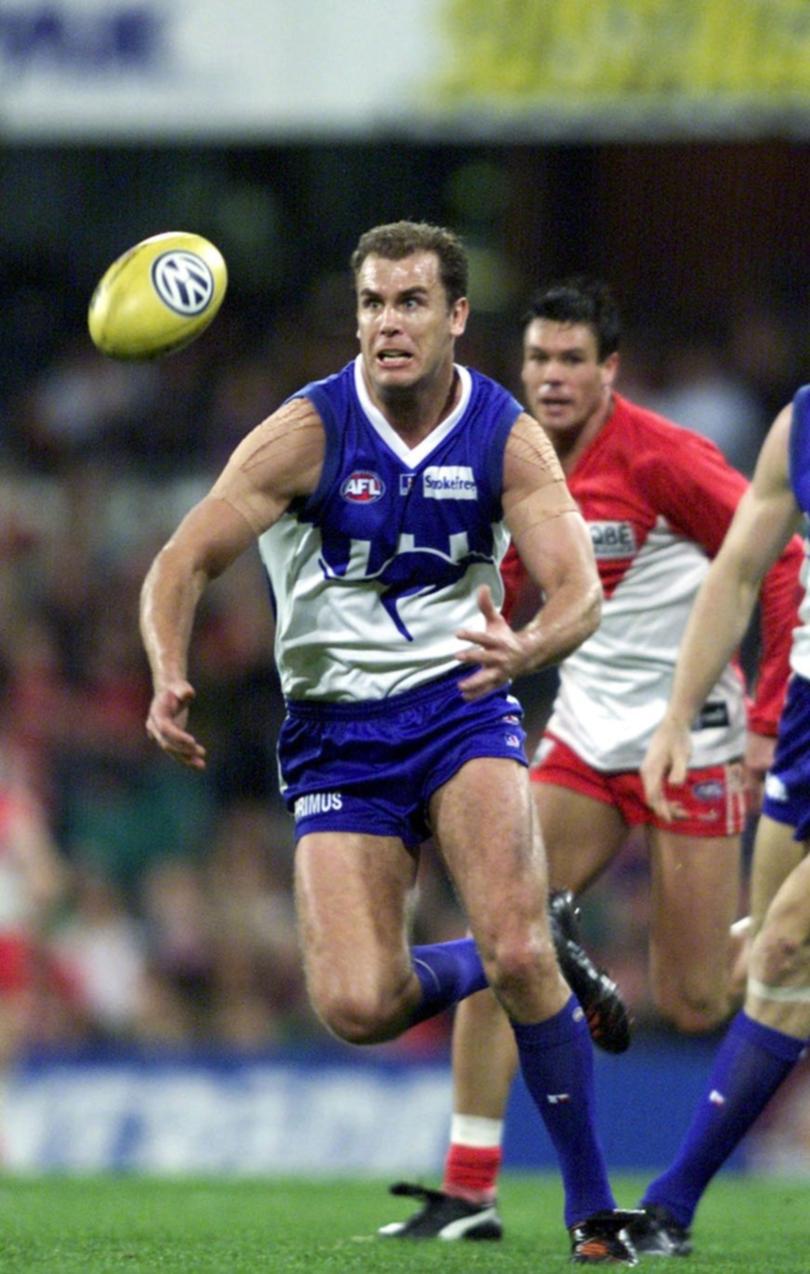BEN COUSINS: What makes GWS skipper Toby Greene best in the AFL
One of AFL’s greatest players Ben Cousins has played against the best in the business. But there is one player he rates as the standout performer of the current crop.

Toby Greene isn’t yet in the same lofty bracket as Wayne Carey and Gary Ablett Sr but there are some striking similarities that make him my pick as the best player of the current crop.
North Melbourne’s dual-premiership skipper Carey performed feats on the field no other player had done before. It’s easy to understand why many footy experts label him the greatest of al. At his best, Geelong’s triple-Coleman medallist was unbeatable in the most challenging part of the ground.
Sign up to The Nightly's newsletters.
Get the first look at the digital newspaper, curated daily stories and breaking headlines delivered to your inbox.
By continuing you agree to our Terms and Privacy Policy.But there’s modern-day giant of the game wreaking havoc in that same part of the field. Like Carey and Ablett Sr, the Greater Western Sydney talisman is somewhat of a flawed genius. Green has been maligned for his lack of on-field discipline, but in the past 18 months he’s managed to win over nearly all football purists on the back of his exceptional talent and leadership.
Greene had his finest season last year — his first as standalone skipper of GWS — kicking 66 goals and leading his side to within a kick of grand final. The 30-year-old was deservedly named the All-Australian captain. Talk about rewriting the story.
Greene’s goal sense is as good as I’ve ever seen but it’s what happens beforehand that impresses me most.

A medium forward, at only 182cm, he is often monstered by bigger opponents and double-teamed in an effort to quell his impact. That’s nothing new for quality players however his ability to analyse the ball movement from downfield and read the flight of the ball when entering his space is peerless.
Then comes Greene’s next act. He positions himself at an advantage to out-body opponents before a subtle push or shift of weight and in a fraction of a second his opponent(s) is left helpless.
When the ball comes to ground this evasiveness is equally impressive. Without a clear path to goal, his focus turns to creating an assist for teammates.
He’ll draw a crowd, sell some candy, and hit a dinky 20m pass to a teammate in space when he had none himself. All of this seems to happen without any thought. It’s totally instinctive, almost embedded in his DNA. You can’t train to be a Greene, you either have it or you don’t and there aren’t many like him.
He’s never been one to look to rack up stats for the sake of it. He always uses the best option. For someone as good around goals as he is, Greene rarely takes a shot when there is a better option available.
I love the saying “don’t count possessions make possessions count”. This perfectly applies Greene.
He’s a great team player and I love this about him. The sole captaincy appears to have brought out the best in him.
He plays a leader’s game. He’s often the one who sparks or kicks a goal when the Giants most need it. He imposes himself on piece of play that changes the course of a game, such as going into the middle to win an important stoppage.

You couldn’t be more impressed by a player who has no obvious physical advantage over his opponents. Sure, he’s strong but he’s neither tall nor quick. And he still manages to make opponents look silly. I can’t think of another player that I’ve seen who gets it done like Greene does. His career numbers of 332 goals and 168 goals assists from 218 games is testament to that.
It’s difficult to compare the best players of today, let alone different eras. It’s very subjective. Running midfielders generally will dominate the conversation. Western Bulldogs midfield maestro Marcus Bontempelli is a generational player and without a flaw in his game but in this current crop, Greene’s all-round game is an entertaining point of difference and therefore, pound for pound, he sits at the top of tree for me.
It jumps off the page that Carey, Ablett Sr, Leigh Matthews and Greene have never won a Brownlow Medal.

So why the anomaly?
You have to remember that these players were uber-aggressive players and that most likely worked against them, which adds to the quirkiness of how it’s assessed. Umpiring in the AFL is the most difficult job in world sport and after doing that, immediately post-match they’re expected to accurately assess the impact of a lower-statistic performance versus a player who collected up a heap of touches.
That’s a big ask for anyone, so why wouldn’t you play it safe and default to the obvious? I’m OK with that, obviously, and I don’t believe it needs to change as I love the history behind it.
All-Australian honours and indeed captaincy has rightfully bridged the gap. Last year’s Brownlow count saw him finish equal 13th with only midfielders above him, so that’s near enough a win for mine.
